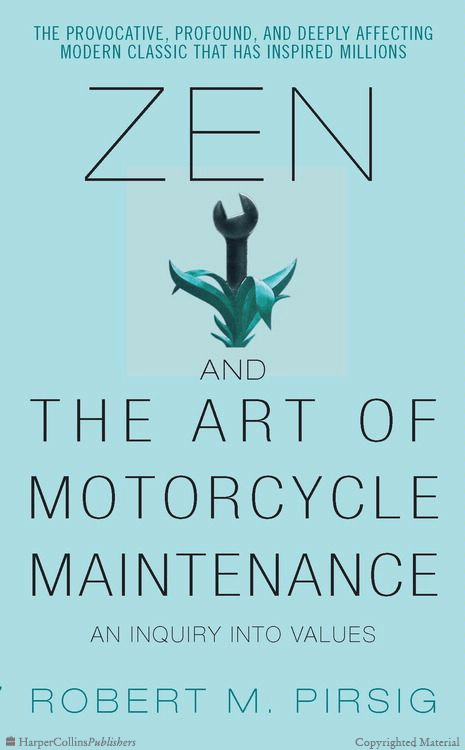 Image source: june.kim
Image source: june.kim
In the light of the recent passing of the book’s author Robert Pirsig, it would do well to be aware (if not outright familiar) with why this novel/meditation has been so well received and has gained classic status in modern literature. For one, the title can be confusing and misleading to many.
“Zen and the Art of Motorcycle Maintenance” involves the two-wheelers, yes. The main characters are a father and his son who are undertaking a long trip across country-road America. Along the way, the first-person narrator (in the persona of the father) discusses in detail many technical aspects of how to best care for a motorcycle.
But it won’t take the reader long to figure out that these episodes into bike mechanism and tinkering are but sidetracks in the novel’s open road. Moreover, these meticulous details come across more as metaphors for world views, modern age perspectives, and Zen Buddhism.
 Image source: npr.org
Image source: npr.org
Readers will quickly get hooked on the thought-provoking, humanist views of science and religion, as well as the characters’ plot-driven adventures on the road. The narrator calls these explorations into philosophy “Chautauquas,” long discourses on modern-day living and Zen. These get expounded on by his alter ego called Phaedrus, who takes the brunt of the exposition for chapters that delve deep into what he calls “metaphysics of quality.”
As some point, the dad-narrator surrenders to his fictive “other” Phaedrus personality, driven not so much by the plot but by his troubled mind, which actually becomes most lucid, most at one with the world and the good. “Good is a noun,” he posits. This book is a must-read: it will certainly change not just one’s opinion of riding motorcycles, but one’s general outlook in life.
Anura Leslie Perera is involved in various charitable organizations and leads a network of international entrepreneurs aiming to make the world a better place. He is intent on taking the truths of Buddhist philosophy and delivering them to many communities both locally and internationally. For more on his work, follow this Facebook page.
 Image source:
Image source:  Image source:
Image source: